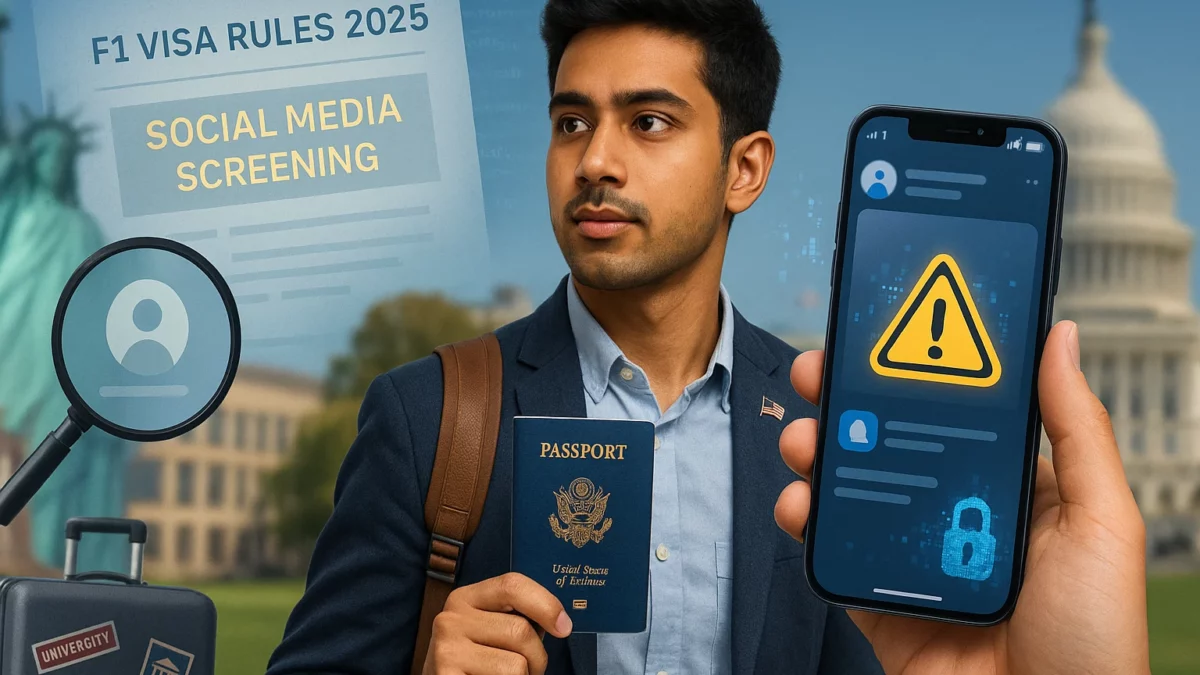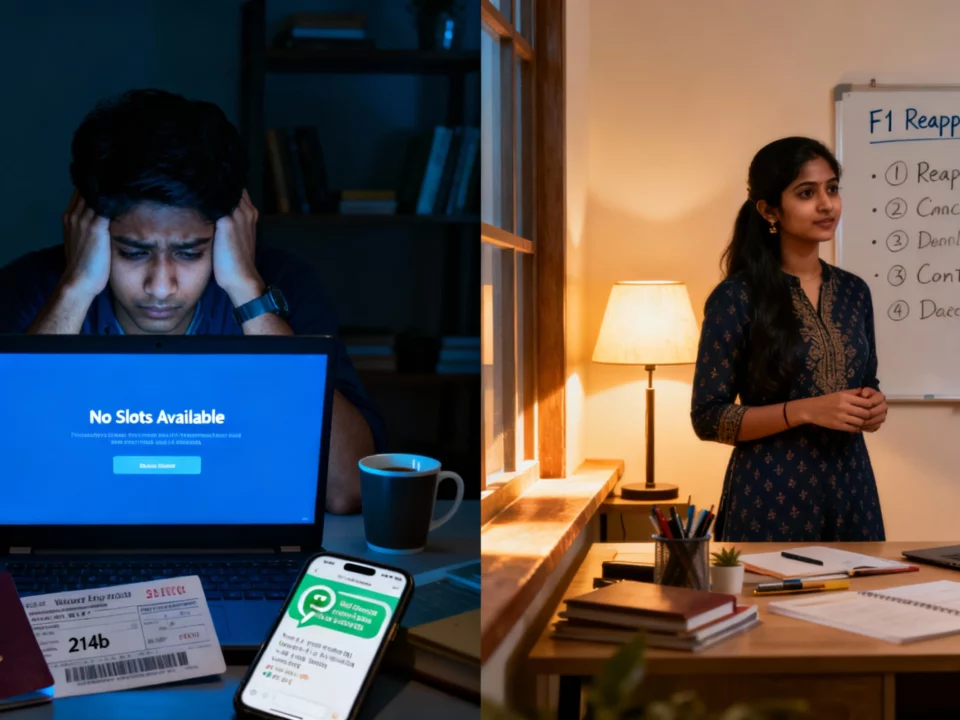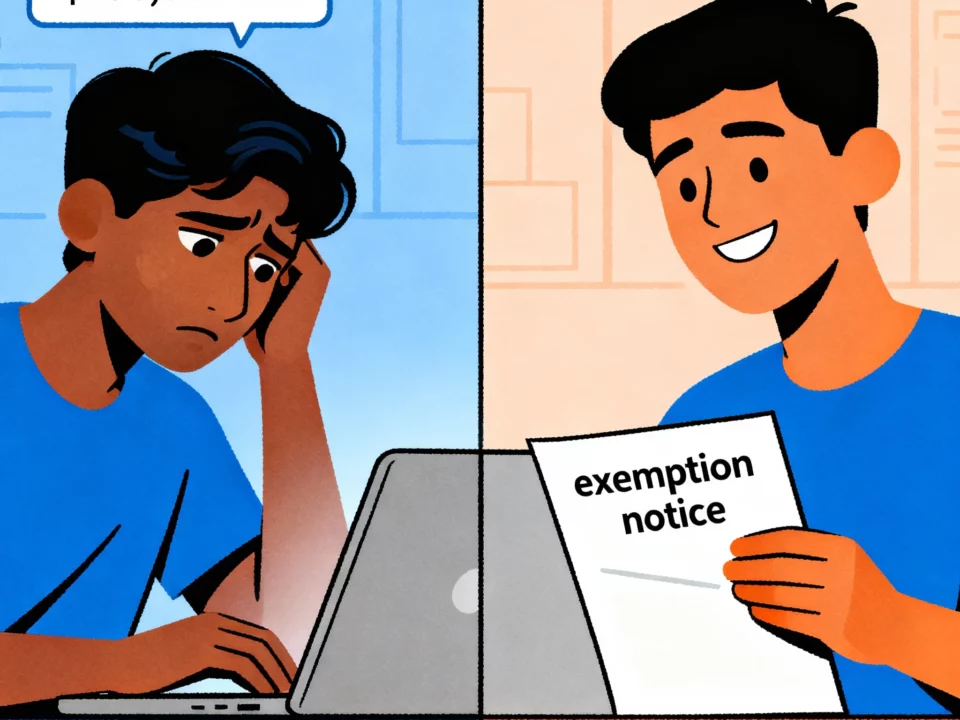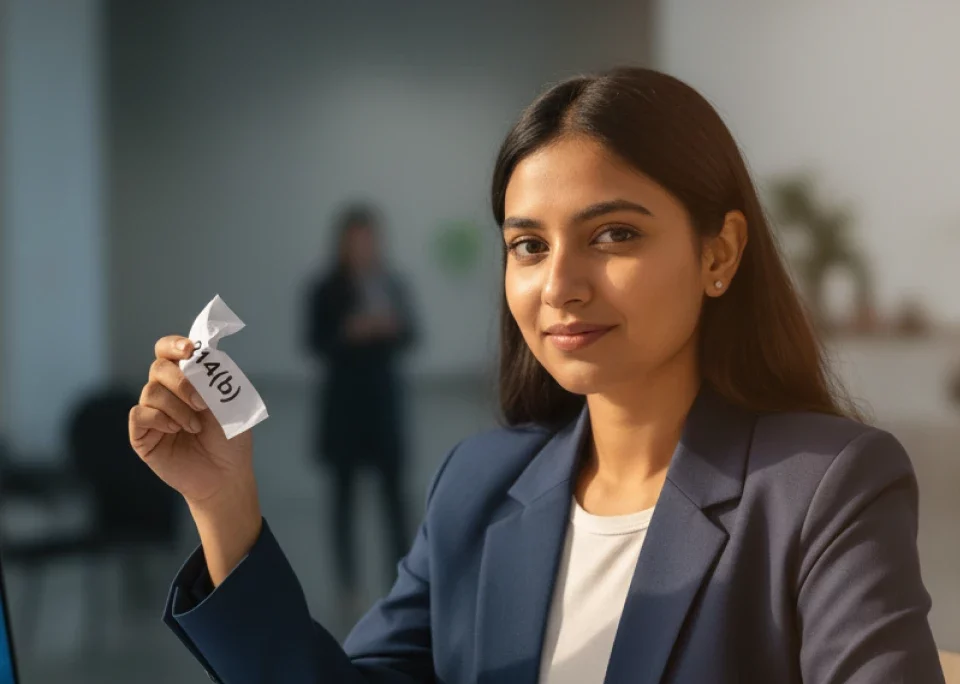F1 Visa Social Media Rules 2025: What Indian Student Must Know

Estimated reading time: 5 minutes
If you’re preparing for your visa interview, chances are you’ve already heard whispers—or panicked messages—about the new F1 visa social media directive. Yes, it’s true. U.S. authorities have tightened the screening process, and social media vetting is now a critical part of F1 visa approvals. But what does it really mean for students? And could this lead to more refusals? Unfortunately, yes—it already has.
Let’s break it down.
Table of contents
- Why Is F1 Visa Social Media Being Scrutinized?
- Does Keeping Social Media Accounts Private Cause Rejections?
- What to Include in DS-160 Under F1 Visa Social Media Section
- The Biggest Mistake? Treating It Like a College Viva
- Why You Shouldn’t Leave This to Trial and Error
- Conclusion: F1 Visa Social Media Is No Joke—Don’t Take It Lightly
Why Is F1 Visa Social Media Being Scrutinized?
In recent months, the U.S. Department of State has issued clearer instructions for consular officers to check your online presence during the visa vetting process. That means your Instagram, Facebook, LinkedIn, Twitter, YouTube, Reddit, even that old Quora account you barely remember — are all under the scanner.
So, if you’re wondering:
👉 “Should I declare all 20+ social media handles I’ve created in the past?”
👉 “What if some accounts are inactive or private?”
The answer is simple, yet uncomfortable: Declare all that are active and public-facing. If you’re trying to hide something or your profile is private, that alone might raise red flags.
Does Keeping Social Media Accounts Private Cause Rejections?
This is where it gets tricky.
Many students think keeping their profiles private is the safe route. But here’s the thing: a private profile is often treated as a red flag. Visa officers may assume you have something to hide—whether you do or not. Under the new F1 visa social media checks, this can unfortunately lead to straight-up rejections without much room for appeal.
And if you’re an Indian student, things can get even more complicated. The refusal rate for Indian applicants was already high. With this added layer of scrutiny, it’s now even more important to get your entire application—including your social presence—in line with current best practices. US Embassy in India
What to Include in DS-160 Under F1 Visa Social Media Section
When filling out the DS-160 form, you’ll find a section asking for your social media identifiers over the past five years. Here’s what to do:
✅ List all usernames or handles for platforms like Facebook, Instagram, Twitter, LinkedIn, Reddit, YouTube, TikTok, etc.
✅ Make sure the profiles you list are active and clean (meaning: no inappropriate memes, anti-U.S. comments, fake achievements, etc.)
✅ Ensure your public posts reflect your academic and career aspirations—not just travel pics and casual rants.
But most importantly: don’t lie or omit. Even if a platform seems irrelevant, the consulate’s system can detect discrepancies.
The Biggest Mistake? Treating It Like a College Viva
Let’s be honest. A lot of students still think the F1 visa interview is just a quick Q&A session—something like a job interview or a university viva. Almost 70% of the F1 visa refusal student just focus on on just getting another refusal slot for f1 visa
But trust us: it’s much more complex.
Your DS-160 form, your academic history, your financials, your answers during the interview, and now—your social media presence—are all part of a cross-verified story. If anything doesn’t add up, your chances plummet.
And yet, many students walk into the consulate unprepared, with vague answers like “I just wanted to explore the U.S.” or “I applied to SUNY because it was the easiest.” That’s a straight ticket to 214(b) refusal.
To prepare better, check out EducationUSA’s 5-step guide, which offers a structured process to apply and succeed as a U.S.-bound student.
Why You Shouldn’t Leave This to Trial and Error
We’ve seen f1 visa students get rejected twice or even thrice before they finally realize how casual they had been during their first attempt. Often, by then, it’s too late. Agents who operate with a 2012 mindset still advise students to list exact refusal dates like “I was refused under 214(b) at Delhi consulate on this and this date” — which is not how modern visa prep works.
This is why expert guidance matters. And no, we’re not talking about someone who gives you 10 questions and tells you to “be confident.”
At bluehawks, our F1 visa approval blueprint is tailored for students who don’t want to gamble with their future. We cover everything—from DS-160 optimization to real mock interviews with visa experts and ex-visa officres. More importantly, we help students clean up their F1 visa social media trail to reflect clarity, purpose, and integrity.
Conclusion: F1 Visa Social Media Is No Joke—Don’t Take It Lightly
In 2025, F1 visa social media checks are not just a technicality—they are a game-changer. Every post, like, comment, or follow can say something about who you are. The sooner students accept that this is no longer a routine process, the better.
If you’re even slightly unsure about your DS-160, your past refusals, or your online presence—get help now, not after your first rejection.
Because remember: the visa officer only needs a few minutes to judge your years of effort. Let’s make sure those few minutes are flawless.
Need help with your DS-160, visa interview, or F1 visa social media cleanup?
👉 Join Bluehawks’ F1 Visa Success Blueprint and avoid the mistakes that lead to rejections.
Because in 2025, smart students don’t play the guessing game. They prepare like it’s their only chance—because sometimes, it is.
💬 Chat with our 24/7 chat support team, tap on that WhatsApp button on the right bottom of your screen 👉



